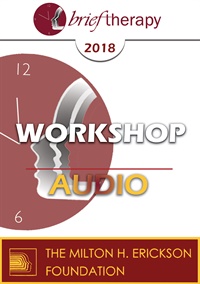
- Average Rating:
- Not yet rated
- Topic Areas:
- Workshops | Brief Therapy | Trauma | Somatic Experiences | Therapeutic Relationship | Pain and Healing
- Categories:
- Brief Therapy Conference | Brief Therapy Conference 2018
- Faculty:
- Janina Fisher, PhD
- Duration:
- 2:05:52
- Format:
- Audio Only
- Original Program Date:
- Dec 07, 2018
- Short Description:
- Traditional models of trauma treatment emphasize a narrative approach centered on the overwhelming events, a very long, slow, painful approach in which clients get worse before they get better. But rather than ‘treat’ the events, neuroscience teaches us how to treat their effects. When trauma symptoms are “decoded” as evidence of how individuals survived, they become comprehensible and treatable. Clients are recruited as active participants in the treatment, are educated to understand trauma-related responses, reassuring them that they are not inadequate or crazy. Best of all, a brief therapy model can be inherently relational while avoiding the 'side effects' of long-term therapeutic relationships.
- Price:
- $15.00 - Base Price
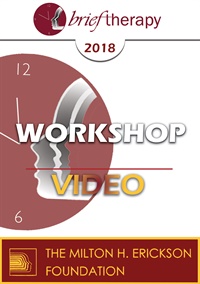
Credit available - Click Here for more information
- Average Rating:
- Not yet rated
- Topic Areas:
- Workshops | Depression | Continuing Education | Brief Therapy | Neuroscience | Psychopharmacology
- Categories:
- Brief Therapy Conference | Brief Therapy Conference 2018 | Online Continuing Education
- Faculty:
- Bill O'Hanlon, MS
- Course Levels:
- Master Degree or Higher in Health-Related Field
- Duration:
- 1:42:03
- Format:
- Audio and Video
- Original Program Date:
- Dec 07, 2018
- Short Description:
- Recent research and insights have given a new understanding of depression, not as a deficit in chemicals, but as a problem with neurogenesis (new brain growth and connection). Antidepressants may work by promoting brain cell and neuronal growth and connection, but there are other ways, within the grasp of therapists, counselors and addiction specialists that can make an immediate and lasting difference in helping relieve depression. This session will give three simple methods for relieving depression using insights from recent brain science.
- Price:
-
Sale is $29.00
price reduced from Base Price - $59.00
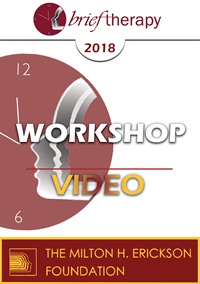
Credit available - Click Here for more information
- Average Rating:
- Not yet rated
- Topic Areas:
- Workshops | Brief Therapy | Therapeutic Relationship | Therapist Development | Neuroscience
- Categories:
- Brief Therapy Conference | Brief Therapy Conference 2018 | Online Continuing Education
- Faculty:
- Stephen Gilligan, PhD
- Course Levels:
- Master Degree or Higher in Health-Related Field
- Duration:
- 2:00:04
- Format:
- Audio and Video
- Original Program Date:
- Dec 07, 2018
- Short Description:
- By virtue of our "mirror neurons", it is impossible for therapists to not be deeply touched by client's experiences. We will explore how this can be done skillfully and safely, thereby opening multiple pathways of feedback, compassion, and technical competencies. Special attention will be to mindful activation of the three "minds" of somatic, cognitive, and relational field intelligence, again with the intent of creating a deep and sophisticated conversational connection.
- Price:
-
Sale is $29.00
price reduced from Base Price - $59.00
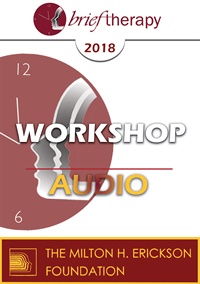
- Average Rating:
- Not yet rated
- Topic Areas:
- Workshops | Brief Therapy | LGBTQ | Multicultural | Trauma
- Categories:
- Brief Therapy Conference | Brief Therapy Conference 2018
- Faculty:
- Rick Miller, MSW
- Duration:
- 1:46:52
- Format:
- Audio Only
- Original Program Date:
- Dec 07, 2018
- Short Description:
- The relationship between gay sons and their mothers is fascinating based on the history of psychiatry pathologizing this bond, suggesting an enmeshment that contributed to the son being gay. Currently, this relationship consists of an empowering bond that contributes to a healthy sense of self in a world where acceptance isn’t necessarily prevalent. The actual key to wellbeing consists of receiving good enough mothering rather than total acceptance of his being gay. This presenter, a gay male author notes that there is little information on this topic, hence the inception Gay Sons and Mothers. This “docuseries” consists of photos and narratives depicting these bonds, video interviews portraying the emotional aspects of their relationships, as well as theory based on interviews and personal experiences.
- Price:
- $15.00 - Base Price
Tags: Gay LGBTQ Multi-Cultural Trauma
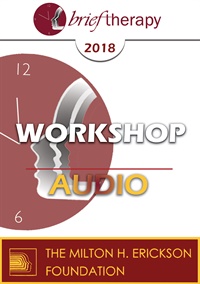
- Average Rating:
- Not yet rated
- Topic Areas:
- Workshops | Tailoring | Mindfulness | Psychotherapy | Brief Therapy
- Categories:
- Brief Therapy Conference | Brief Therapy Conference 2018
- Faculty:
- Ronald Siegel, PsyD
- Duration:
- 1:56:11
- Format:
- Audio Only
- Original Program Date:
- Dec 07, 2018
- Short Description:
- Mindfulness and compassion practices hold great promise not only for our own personal development, but also as remarkably powerful tools to augment virtually every form of psychotherapy. They are not, however, one-size-fits-all remedies. Practices need to be tailored to fit the needs of particular individuals—and this presentation will show you how to creatively adapt them to meet the needs of diverse people and conditions.
- Price:
- $15.00 - Base Price
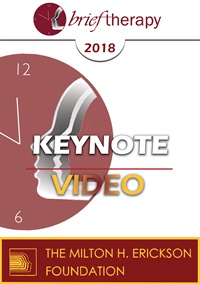
Credit available - Click Here for more information
- Average Rating:
- Not yet rated
- Topic Areas:
- Keynotes | Brief Therapy | Psychology | Psychotherapy
- Categories:
- Brief Therapy Conference | Brief Therapy Conference 2018 | Online Continuing Education
- Faculty:
- Frank Sulloway, PhD
- Course Levels:
- Master Degree or Higher in Health-Related Field
- Duration:
- 1:03:02
- Format:
- Audio and Video
- Original Program Date:
- Dec 07, 2018
- Short Description:
- BT18 Keynote 03 - Birth Order and Human Behavior: Understanding an Elusive Relationship - Frank J. Sulloway For more than half a century, studies of birth order and human behavior have been mired in disagreement over the existence, magnitude, and specific nature of this relationship. In this talk I argue that much of the previous research in this field has been substantially impeded because birth order is an imperfect proxy for multiple within-family influences that shape personality development within families, but that are overlooked in most studies. Much of the previous disagreements in this field can also be can be attributed to other methodological problems, including a failure to consider individual differences and their sometimes complex interactions with birth order, as well as the role of the behavioral context. This talk presents the results of a novel research design aimed at overcoming these problems and involving 438,251 responses collected using Internet surveys.
- Price:
-
Sale is $29.00
price reduced from Base Price - $59.00
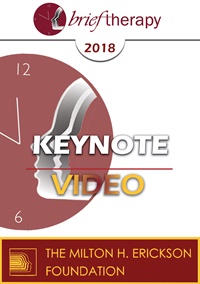
Credit available - Click Here for more information
- Average Rating:
- Not yet rated
- Topic Areas:
- Keynotes | Trauma | Brief Therapy | Meditation, Spirituality and Yoga | Post-Traumatic Stress Disorder (PTSD) | Music
- Bundle:
- Learning Track - Turn Down the Trauma
- Categories:
- Brief Therapy Conference | Brief Therapy Conference 2018 | Online Continuing Education
- Faculty:
- Bessel van der Kolk, MD
- Course Levels:
- Master Degree or Higher in Health-Related Field
- Duration:
- 1:06:32
- Format:
- Audio and Video
- Original Program Date:
- Dec 06, 2018
- Short Description:
- This workshop will show how trauma affects the developing mind and brain, and teach how trauma affects self-awareness and self-regulation. We will focus on the fundamental difference between trauma desensitization vs. integration and growth, and look at the difference between disrupted attachment and traumatic stress. We will examine the role of interpersonal rhythms and attunement in establishing a sense of self and community. This workshop will discuss and demonstrate affect regulation techniques, examine ways to deal with fragmented self-experience, and teach the benefits of yoga, EMDR, meditation, neurofeedback, music and theater.
- Price:
-
Sale is $29.00
price reduced from Base Price - $59.00
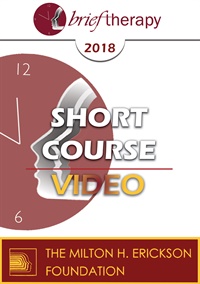
Credit available - Click Here for more information
- Average Rating:
- Not yet rated
- Topic Areas:
- Short Courses | Brief Therapy | Trauma | Ericksonian Hypnosis and Therapy Techniques | Mindfulness | Pain and Healing | Somatic Experiences
- Categories:
- Brief Therapy Conference | Brief Therapy Conference 2018 | Online Continuing Education
- Faculty:
- Ronald Alexander, PhD
- Course Levels:
- Master Degree or Higher in Health-Related Field
- Duration:
- 1:31:13
- Format:
- Audio and Video
- Original Program Date:
- Dec 06, 2018
- Short Description:
- This short course will address the rapid treatment of trauma by utilizing Somatic Experiencing, Ericksonian Hypnosis and Mindfulness practices for accessing the unconscious and activating inner resources with SE, mindfulness, and trance.
- Price:
-
Sale is $29.00
price reduced from Base Price - $59.00
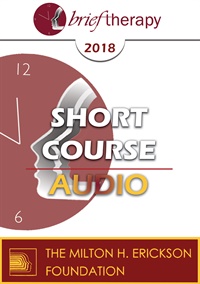
- Average Rating:
- Not yet rated
- Topic Areas:
- Short Courses | Addiction | Brief Therapy | Rational Emotive Behavior Therapy (REBT) | Solution Oriented Approach
- Categories:
- Brief Therapy Conference | Brief Therapy Conference 2018
- Faculty:
- JULIA ALPEROVICH, MS
- Duration:
- 1:25:51
- Format:
- Audio Only
- Original Program Date:
- Dec 06, 2018
- Short Description:
- This presentation will introduce a short-term model of treatment incorporating solution-focused, rational emotive behavioral, and systems theory interventions for residential or intensive outpatient drug and alcohol treatment.
- Price:
- $15.00 - Base Price
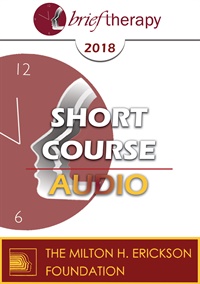
- Average Rating:
- Not yet rated
- Topic Areas:
- Short Courses | Brief Therapy | Therapist Development
- Categories:
- Brief Therapy Conference | Brief Therapy Conference 2018
- Faculty:
- Flavio Cannistra'
- Duration:
- 1:07:49
- Format:
- Audio Only
- Original Program Date:
- Dec 06, 2018
- Short Description:
- Hundreds of brief therapy techniques exist. In this presentation, I will identify the 9 underlying logics, together with methodology and examples.
- Price:
- $15.00 - Base Price
Please wait ...

